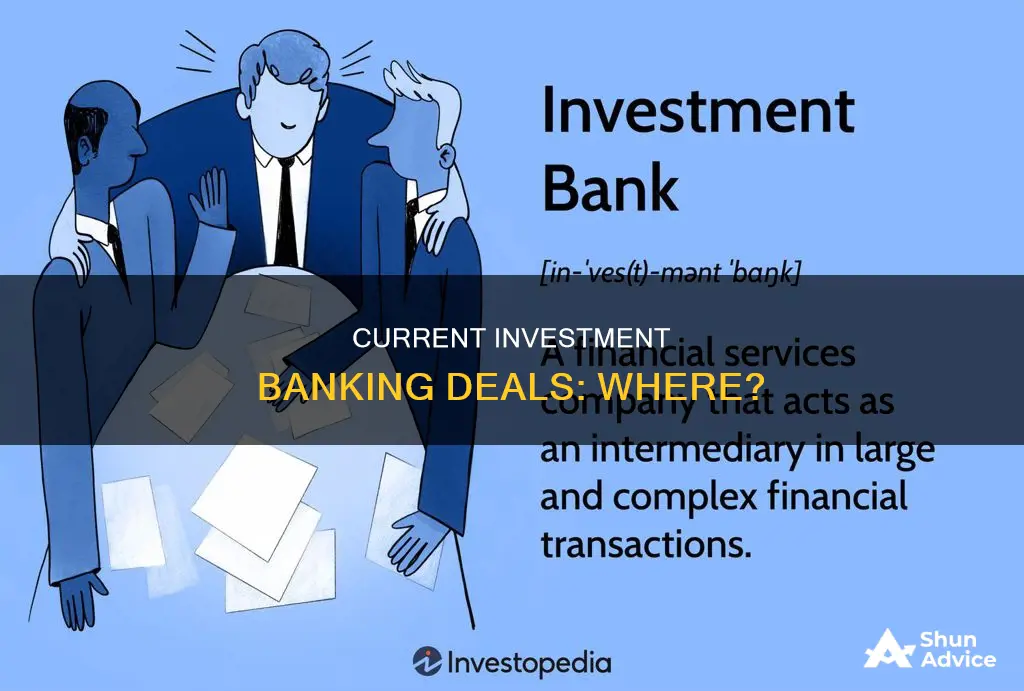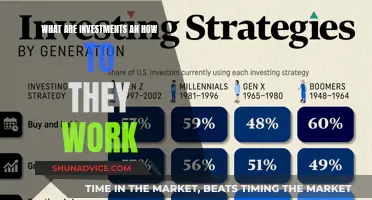
Investment banking deals are often kept confidential until completion, but there are a few ways to find out about recent deals. Mainstream news sources such as the Wall Street Journal, Forbes, Business Insider, and the New York Times Deal Book are good places to start. These publications provide qualitative information and can be used to get an overview of the deal. For more specific details, such as key multiples, company filings can be searched in the SEC database for US companies, or the investor relations section of the company website for non-US companies. Fairness Opinions, which are disclosed by the bank, can also provide valuable information on numbers and multiples. Additionally, for equity issuances, the S-1 form can be referenced to find the company's share price at issuance.
To find out about deals that a specific bank has worked on, Bloomberg, FactSet, and Thomson Reuters Deal Intelligence can be useful resources. Google searches using the bank's name and keywords such as advisor or underwriter can also provide some information. Websites like Dealbook and Mergermarket also provide insights into recent deals and the banks involved, although they may not have as much detail.
| Characteristics | Values |
|---|---|
| Finding recent deals | Thomson Reuters Deal Intelligence, Google news, Bloomberg, FactSet, CapIQ, Dealogic, WSJ, FT, Forbes, Business Insider, NY Times Deal Book, SEC database |
| Finding what banks worked on deals | Thomson One, Bloomberg, Google ("Verizon Vodafone advised by", for example) |
| Finding previous deals | Google, Thomson Reuters Deal Intelligence, CapIQ, Bloomberg, FactSet, WSJ Money Beat blog |
| Finding details about recent deals | Press releases, SEC website, company presentations, S-1, Fairness Opinion |
| Finding deal multiples | Fairness Opinion, company presentations, S-1, Bloomberg, Capital IQ |
| Finding % of debt that a sponsor used in an acquisition | SEC filings, press releases, Capital IQ |
What You'll Learn

Ask bankers about their favourite deals
Investment bankers are often tight-lipped about the deals they're working on, but you can find out about recent deals by checking mainstream news sources such as the Wall Street Journal, Forbes, Business Insider, and the New York Times Deal Book. You can also search for specific deals on Google News or use a paid service like Bloomberg or Thomson Reuters Deal Intelligence.
Once you know about a few deals, you can ask bankers about their favourite ones. Here are some questions to get you started:
"What was your favourite deal to work on in the last few years?"
"Can you walk me through one of your favourite deals and explain why it stands out?"
"What made that deal so successful? What were the key factors that led to its success?"
"Were there any unique challenges or obstacles that you had to overcome during that deal?"
"How did you and your team celebrate after closing the deal?"
Remember that bankers may be hesitant to share confidential information, so be mindful of the questions you ask and respect their boundaries.
Nifty: Invest Now or Later?
You may want to see also

Use Google News to search for deals
Google News can be a useful resource for finding investment banking deals. You can use the search function to look for deals by specific banks or companies. For example, searching for "Credit Suisse Underwriter" or "Goldman Sachs advisor" may bring up relevant news articles.
You can also try variations of this strategy by including terms like "advisor" or "underwriter" with the names of specific companies. This approach may require some digging, but it can be a good way to find information on recent deals.
Additionally, Google News can be used to find deals in specific industries. For instance, if you are interested in the technology sector, you can search for "tech investment banking deals" or "technology M&A deals". This will provide you with a list of relevant news articles and press releases about recent deals in that industry.
It is worth noting that Google News may not provide the same level of detail as specialised databases or platforms such as Bloomberg, Factset, or Thomson Reuters Deal Intelligence. However, it can still be a valuable resource for finding information on investment banking deals, especially if you are looking for a quick and free way to stay informed about recent developments in the industry.
When searching for deals on Google News, it is important to use specific search terms and to be as precise as possible. This will help you narrow down the results and find the most relevant information. Additionally, try using different combinations of search terms to cast a wider net and increase your chances of finding relevant deals.
Sony: Invest Now or Miss Out?
You may want to see also

Use Bloomberg Professional
If you work in finance or are looking to enter the industry, chances are you've heard of Bloomberg Terminal. Bloomberg Terminal has been an indispensable data and information system for financial professionals for decades. It is a Windows-based application that is compatible with Excel, which is widely used in the finance industry.
The platform offers a wealth of news and headlines, real-time quotes across numerous markets, tools for fundamental and technical analysis, economic research, and more. It is also accessible via Bloomberg Anywhere, which allows users to access real-time market information from almost anywhere in the world through online and mobile devices.
To get started with Bloomberg, you can subscribe to the service by contacting them via their general contact number, ((212) 318-2000). A representative will take down your details and requirements, and a sales team member will get in touch to discuss pricing and terms. Please note that Bloomberg is an expensive system, with a standard license costing around $2,000 per month or $24,000 per year.
If you are unable to subscribe to your own service, you can access Bloomberg Terminal at a public facility such as a large library or university. While this option does not allow for customization and requires sharing with other users, it can provide significant cost savings.
Once you have access to the system, you will need to learn how to navigate it. Bloomberg offers technical support and assistance, and a customer service representative can provide guidance on using the terminal. The platform uses a special keyboard with function keys that differ from a standard keyboard, which facilitates navigation by asset class: government bonds, corporate bonds, municipals, commodities, equity, and currency.
Bloomberg uses abbreviations and tickers for most functions. For example, to get a quote on Microsoft stock, you would type in the symbol "MSFT" followed by the "EQ" key and then hit enter. This would bring up a menu of options related to Microsoft stock.
Bloomberg also has a robust messaging system that allows users to stay in contact with other users. You can send traditional messages, similar to emails, or open an instant message window for real-time communication.
In addition to analyzing securities, Bloomberg is commonly used to monitor news updates and financial market movements. You can access a page of top news stories of the day, which are updated regularly, by typing "<" or ">". These stories can be further filtered by asset class, geographic region, or topic.
For market monitors, you can access a variety of screens that cover multiple asset classes or focus on specific markets, such as the PX1 screen for the U.S. Treasury bond market and the BTMM screen for the bond market.
Bloomberg also provides tools for analyzing individual securities, including equities, fixed income, currencies, commodities, mutual funds, and ETFs. You can search for securities by name, exchange, or country, view historical pricing, read business descriptions, and access analyst reports and estimates.
One of Bloomberg's standout features is its derivatives capabilities, allowing users to find real-time values for securities such as exchange-traded options and futures contracts. It also enables users to value hard-to-price derivatives by customizing their option valuation models.
With its robust suite of analytics and market capabilities, Bloomberg Terminal is an invaluable tool for professionals in the financial industry.
Investment Bankers: Why All the Hate?
You may want to see also

Use Thomson Reuters Deal Intelligence
Thomson Reuters Deal Intelligence provides users with access to up-to-the-minute market intelligence through a variety of research reports, weekly investment banking scorecards, deals snapshots, and industry-leading quarterly reviews. The platform offers insights into global and regional investment banking fees, mergers and acquisitions, debt and equity capital market reviews, sustainable financing, syndicated loans, project finance, corporate governance, and private equity and venture capital.
The Deals Intelligence platform provides users with the ability to analyse market trends and assess the changing competitive landscape with league tables and reports. The data is sourced through direct deal submissions from global banking and legal contributors, as well as extensive research performed by a dedicated team of analysts across a range of sources, including regulatory filings, corporate statements, media, and pricing wires.
With Thomson Reuters Deal Intelligence, users can track deal flows, identify market trends, and gain insight into their competitive positioning within any region, asset class, or industry vertical. The platform offers flexible levels of granularity, allowing users to specify the level of detail they need.
Additionally, Thomson Reuters Deal Intelligence provides access to historical data, with 4.4 million transactions announced in 225 nations since the 1970s. This long-term data enables users to identify patterns, compare current deals to past deals, and make more informed decisions. Leading media outlets worldwide publish league table rankings of investment banks and law firms based on the data provided by Thomson Reuters Deal Intelligence, demonstrating the reliability and accuracy of the information.
Overall, Thomson Reuters Deal Intelligence is a comprehensive and flexible resource for investment bankers, providing timely insights and analytics on M&A and capital markets transactions. The platform enables users to stay ahead of the competition by offering a powerful combination of information, analytics, and exclusive news on financial markets.
Value Investing: A Rare Gem
You may want to see also

Ask about tombstones with recent dates
If you're looking to find out about recent investment banking deals, one way to do so is to ask about tombstones with recent dates. Tombstones are deal tombstones, which are plaques that commemorate the closing of a deal and are usually displayed in the office of the involved investment bank. Asking about these tombstones with recent dates is a way to find out about deals that a bank is currently working on or has recently completed. This can be a good way to get information on deals that are still proprietary and haven't been announced or publicized yet.
Another way to approach this is to ask about recent deals in an informational interview. For example, you could ask, "What was your favourite deal over the last few years?" This way, you can take that information and do further research on that deal on your own.
If you're looking for previous deals, you can try using resources such as Thomson Reuters Deal Intelligence, Google News, or Bloomberg/FactSet if you have access to them. You can also try googling specific deals you're interested in, using search terms like " [Company name] advised by" or " [Company name] underwriter." Dealbook by the New York Times also sometimes lists financial and legal advisors for bigger deals.
For details on the deals, such as deal structure, multiples, etc., you may need to look for press releases or have access to databases such as CapIQ or PrivCo. Mainstream news sources like the Wall Street Journal, Forbes, Business Insider, and the New York Times Deal Book can also provide qualitative information on deals. For more specific financial information, you can look up company filings in the SEC database or the investor relations section of the company's website.
Dividend ETFs: Smart Investment for Young People?
You may want to see also
Frequently asked questions
You can find information on recent deals in mainstream news sources such as the Wall Street Journal, Forbes, Business Insider, and the New York Times Deal Book. You can also find information on specific deals on the SEC website.
Pick a deal to research that has been covered in mainstream sources, or sign up for alerts on deals in your sector of interest. Focus on bigger transactions and aim to discuss 1-2 recent deals in your interview.
First, provide background information on the buyer and seller, including revenue, profits/EBITDA, multiples, and businesses. Second, explain the deal rationale. Third, discuss the premium paid, deal multiples, and anything else unusual about the deal structure. Finally, give your opinion on whether the deal will be beneficial for both parties in the short and long term.
Aim for deals within the past year, but deals within the past two years are also fine. You can also discuss pending deals.
One example is Twitter's $1.8 billion IPO. Another example is Silver Lake's $24 billion leveraged buyout of Dell.







